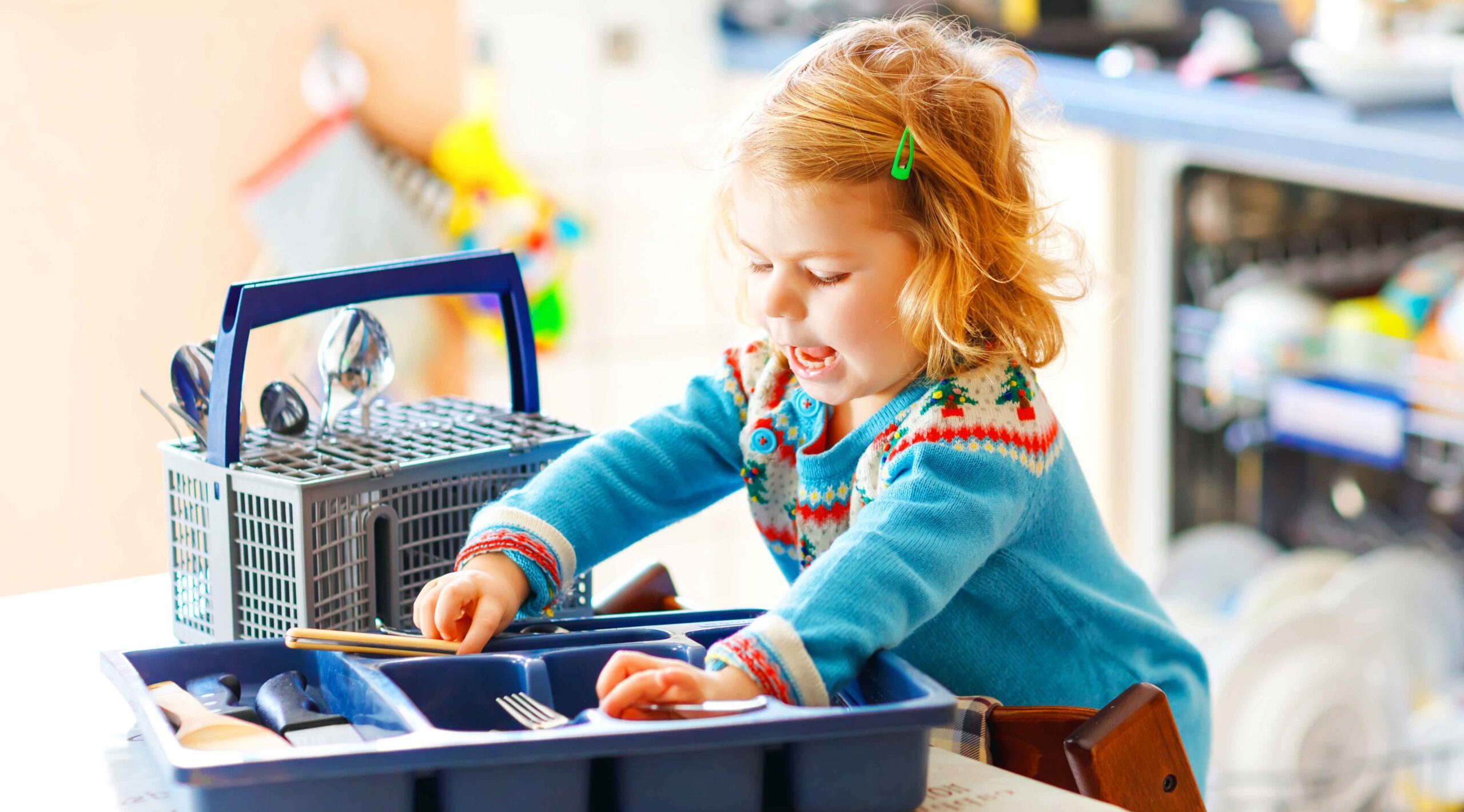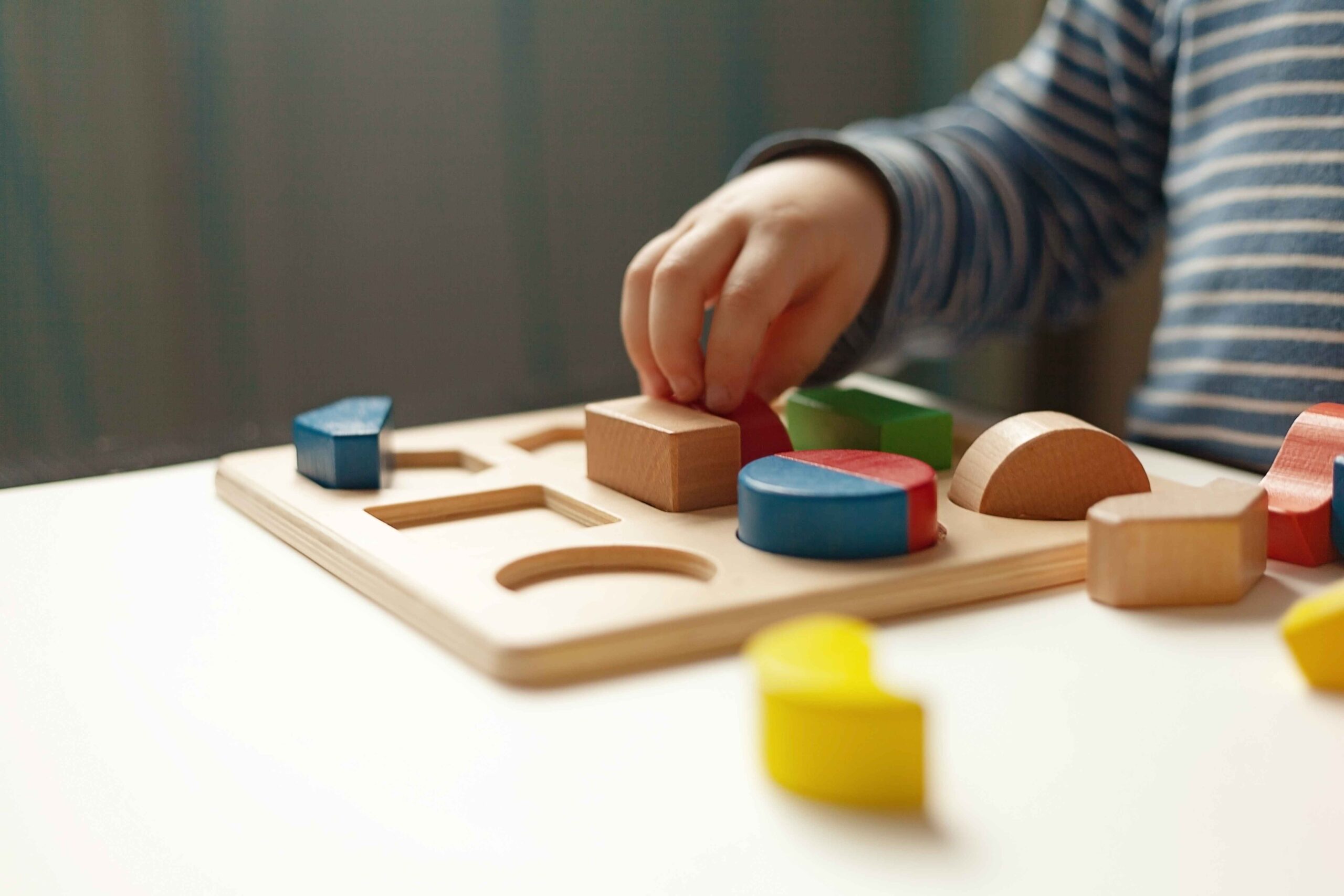The preschool years (ages 3-5) are crucial for children to develop the cognitive skills they’ll rely on for years. These skills—problem-solving, memory, and logical thinking—lay the groundwork for academic success and social-emotional well-being.
While preschoolers learn naturally through play and exploration, engaging them in specific cognitive activities can amplify this development and help them transition smoothly into kindergarten and beyond.
In this blog, we’ll explore why cognitive development activities matter, suggest fun and hands-on ways to promote these skills at home and share tips for using everyday objects to make learning accessible and enjoyable.
Why Cognitive Development Activities Are Important for Preschoolers
Cognitive development involves how children think, explore, and figure things out. It’s about developing reasoning, problem-solving, memory, and attention skills. Cognitive skills are established early on and are integral to the Childventures programs.
During preschool, children experience rapid brain development, and cognitive activities provide the stimulation they need to strengthen neural connections.
Benefits of Cognitive Activities
- Smooth Transition to Kindergarten: Preschoolers who engage in cognitive activities are better prepared for the structured learning environment of kindergarten. They’re more familiar with tasks like following instructions, solving puzzles, and working independently.
- Improved Problem-Solving Skills: Activities that challenge children to think critically or troubleshoot situations help build their problem-solving abilities.
- Boosted Memory and Attention: Memory games and focused tasks improve a child’s ability to retain and process information.
- Foundation for Lifelong Learning: Cognitive activities foster curiosity, resilience, and a love for learning, setting children up for success in their future academic journeys.
Fun Cognitive Activities for Preschoolers to Try at Home
Incorporating cognitive development activities into daily routines doesn’t have to be complicated. You’ll be amazed at how much they help develop fine motor skills. Eye, hand and small muscle coordination signal that a child’s social, emotional, and cognitive skills are developing.
Here are some simple yet effective activities parents and caregivers can enjoy with their preschoolers.
- Sorting Games
Provide objects of various shapes, sizes, or colours and encourage your child to sort them into categories. For example:
- Sort blocks by colour or size.
- Group toy animals by species or habitat.
These activities promote classification skills, attention to detail, and logical thinking.
- Matching Puzzles
Matching card games or puzzles with letters, numbers, or animals is excellent for memory development and recognition skills. Create your cards using pictures from magazines or printouts for a DIY version.
- Sensory Bins
Fill a container with materials like rice, sand, or water beads, and hide small objects for your child to find. Sensory bins provide a multi-sensory experience that supports fine motor skills and encourages curiosity.
- “What’s Missing?” Game
Place several objects on a tray, ask your child to memorize them, and remove one while they’re not looking. Ask them to figure out what’s missing. This activity sharpens memory and observation skills.
- Counting and Number Recognition
Incorporate counting into everyday tasks, like counting how many steps it takes to walk from one room to another. You can also count the number of spoons or plates needed to set the table. This helps children build early math skills in a practical and fun way. - Music and Instruments
Early introduction to music has excellent cognitive, developmental and emotional benefits. Easily incorporate music into your day by playing songs while you engage in activities, singing, and making homemade instruments.
When kids immerse themselves in imaginative play or artistic endeavours, they exercise their minds, building neural connections and enhancing cognitive abilities.
Using Everyday Objects to Enhance Cognitive Skills
You don’t need specialized toys or materials to support your child’s cognitive development. Everyday household items can be transformed into engaging learning tools. Here are some ideas:
- Kitchen Utensils for Problem-Solving
Use measuring cups, spoons, or bowls to stack and organize activities. You can also create patterns with items like forks and spoons and ask your child to replicate them.

- Laundry Sorting for Categorization
Sorting laundry by colour or type (e.g., socks vs. shirts) helps children develop classification and observation skills.
- Memory Games with Household Objects
Place everyday items like keys, a book, and a toy on a tray. Let your child study them for a minute, then cover the tray and ask them to recall as many items as possible.
- Cardboard Creations
Old cardboard boxes can become the foundation for creative problem-solving. Challenge your child to build a fort, create a maze, or design a pretend store using tape, markers, and scissors.
- Scavenger Hunts
Hide objects around the house and give your child clues to find them. This activity boosts problem-solving, critical thinking, and memory.
Encouraging Cognitive Development Through Play and Interaction
Playtime is one of the most effective ways to nurture cognitive skills. Here’s how to make play a powerful tool for development:
- Ask Open-Ended Questions
While playing with blocks or crafting, ask questions like, “What do you think will happen if we stack one more block?” or “How could we use this differently?” Open-ended questions encourage critical thinking and creativity.
- Collaborative Play
Join your child in play and introduce challenges that require teamwork, like building a bridge or solving a puzzle.
- Pretend Play
Encourage your child to use their imagination with pretend play. Role-playing scenarios help develop social and problem-solving skills, whether they’re a shopkeeper, teacher, or superhero.
- Encourage Experimentation
Let your child experiment with trial-and-error activities, such as building a tower with blocks or mixing colours during an art project. Celebrate their effort, even when things don’t work out as planned.
As you can see, incorporating simple activities into your daily routine—like sorting games, memory tasks, and pretend play—can create a rich learning environment that prepares them for future success. Beyond this, we encourage looking for early childhood education programs focusing on cognitive development to accelerate learning.
The Role of Childventures in Supporting Cognitive Development
At Childventures, we understand the importance of fostering cognitive development in preschoolers. Our programs are designed to stimulate curiosity, build problem-solving skills, and encourage a love for learning.
What Sets Childventures Apart?
- Evidence-Based Curriculum: Our curriculum integrates Montessori, Core Knowledge, HighScope, STEM, and Jolly Phonics to provide a comprehensive learning experience.
- Hands-On Learning: Our classrooms contain tactile, interactive materials encouraging exploration and critical thinking.
- Structured Play: We balance guided activities with free play to help children develop cognitive, social, and emotional skills.
When you enroll your child at Childventures, you’re giving them the tools they need to grow into confident, curious learners.
For example, we use Montessori principles and materials to encourage problem-solving and cognitive development. The HighScope model we use is based on cognitive development and has its own set of learning activities. These accompany other evidence-based programs, including Core Knowledge, STEM, and Jolly Phonics.
Ready to learn more? Contact Childventures to learn more about how our programs support cognitive development and schedule a visit to see our classrooms in action.




